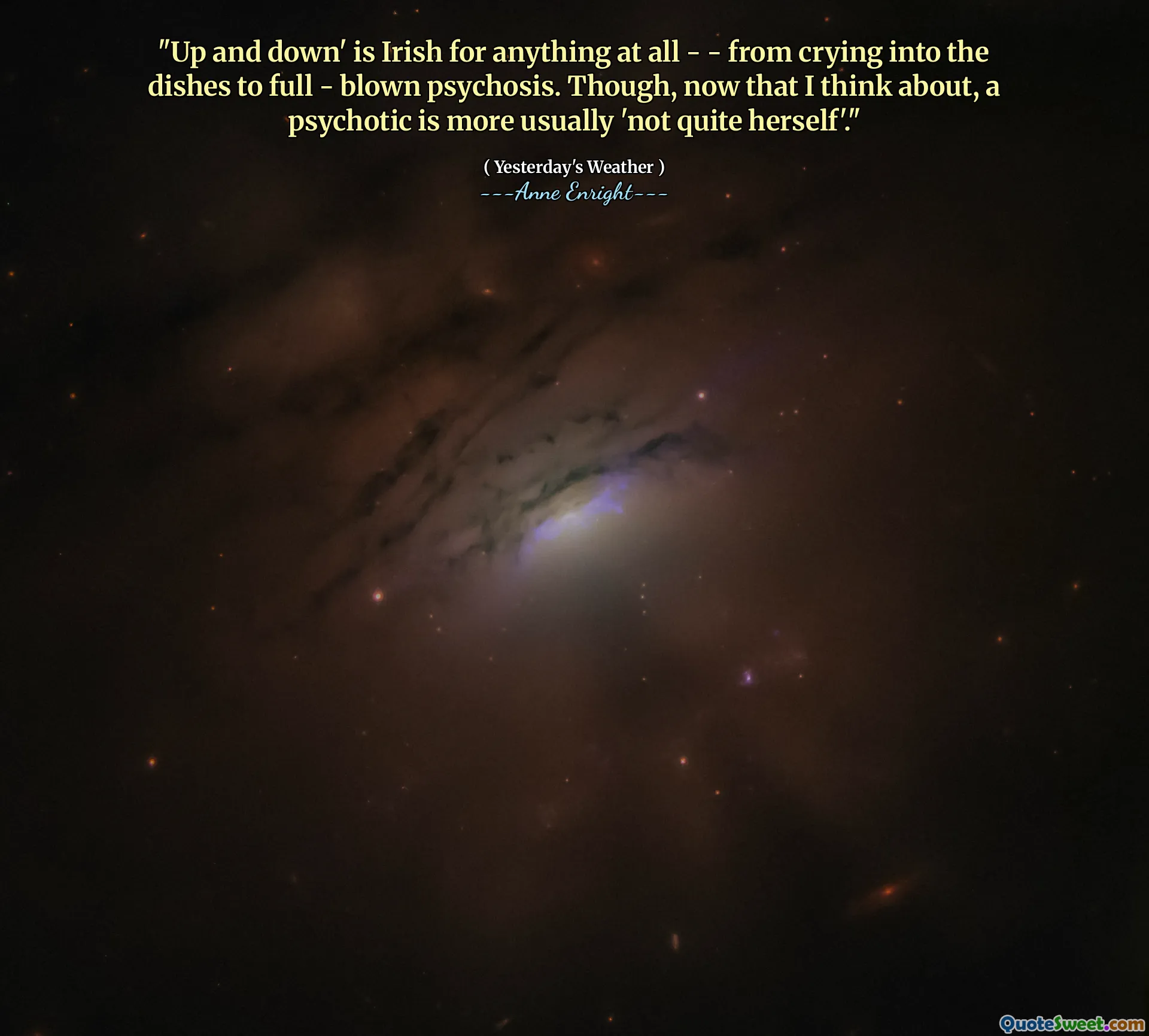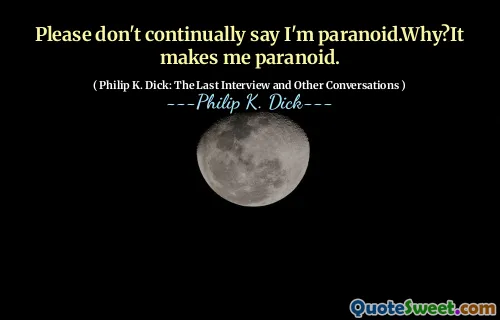
"Up and down' is Irish for anything at all - - from crying into the dishes to full - blown psychosis. Though, now that I think about, a psychotic is more usually 'not quite herself'."
This quote intriguingly captures the fluidity and breadth of everyday emotional expression, particularly framed within an Irish linguistic context. The phrase "Up and down" is depicted humorously and poignantly as an all-encompassing term that could indicate a vast spectrum of feelings and states — from the deeply intimate, such as crying into the dishes, to the extreme psychological condition of psychosis. This duality highlights how language can bridge the mundane with the profound, encapsulating complex emotional experiences into simple, colloquial expressions.
Moreover, the second part of the quote introduces a subtle reflection on mental health, noting that a psychotic state is often characterized by being 'not quite herself.' This phrase conveys a nuanced understanding of identity and mental illness, suggesting a detachment or alteration of the self that can be unsettling or transformative. It implicitly recognizes the fragility of selfhood and how psychological disturbances can disrupt our sense of normalcy.
What makes this quote particularly striking is its mix of humor, cultural specificity, and empathy. It invites readers to reconsider how language and cultural phrases carry deeper meanings about human experience. As someone reflecting on this, I appreciate how it embraces complexity and ambiguity without trivializing mental health struggles. The candid, slightly irreverent tone reflects a lived experience grounded in everyday realities, making the psychological and emotional truths accessible.
In a broader sense, this quote reminds us of the richness embedded in colloquial expressions and encourages a compassionate perspective toward emotional and mental fluctuations. It’s a beautiful example of how literature can use simple language to open conversations about difficult topics while preserving cultural identity and voice.

